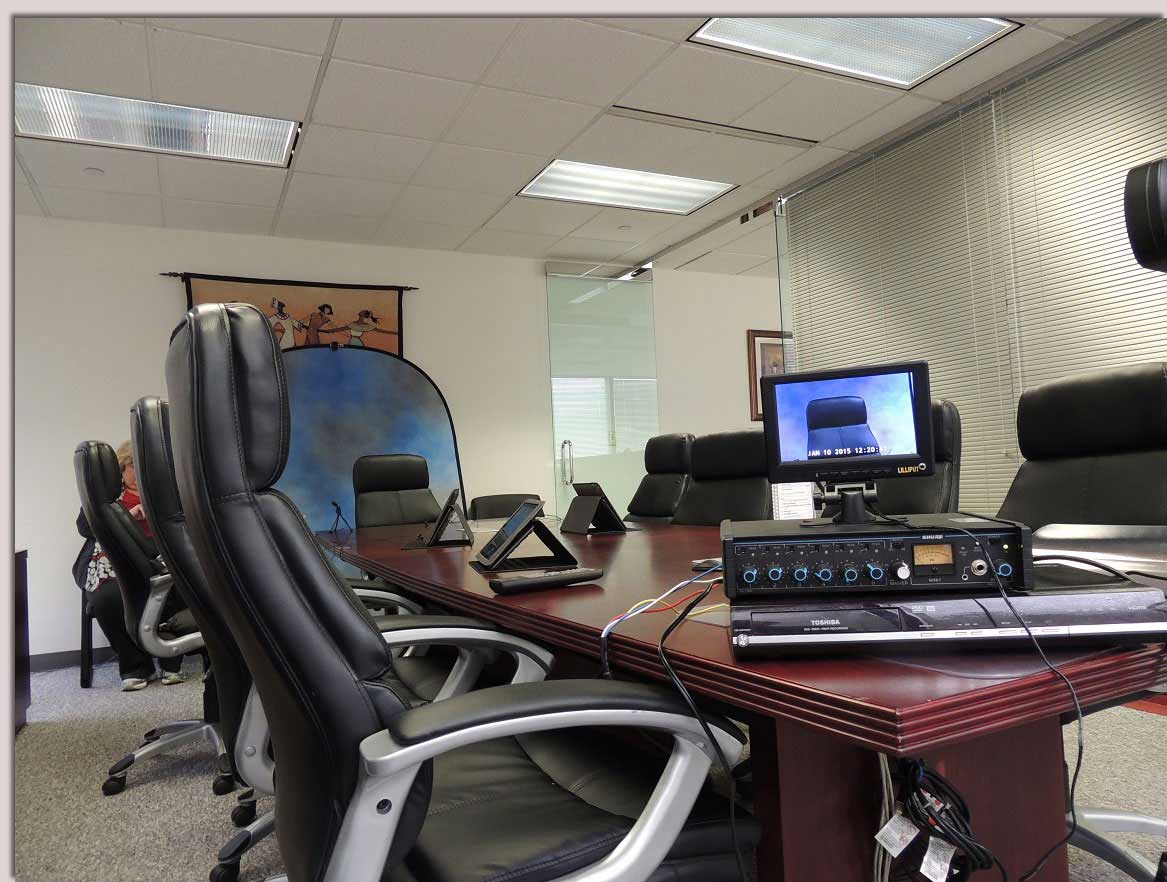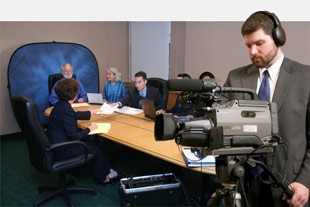Top-Notch Legal Videography for Hearings.
Top-Notch Legal Videography for Hearings.
Blog Article
The Function of Legal Videography in Depositions and Tests
Lawful videography has arised as a necessary tool in both depositions and tests, providing a diverse approach to recording witness testaments. As legal professionals progressively acknowledge its value, it prompts a much deeper exam of exactly how these aesthetic documents can influence juror assumptions and trial results.

Relevance of Lawful Videography
Legal videography plays a crucial duty in the documents and discussion of depositions and trials. This specific field integrates technological abilities with legal understanding to produce a trusted record of process that can significantly affect situation end results. The visual facet of lawful videography improves the understanding of witness testament, allowing jurors and judges to observe not only the talked words yet likewise the behavior, feelings, and body movement of the witnesses.
Furthermore, lawful videography gives an unbiased account of occasions, reducing the possibility for false impression that can accompany created transcripts alone. This visual paperwork acts as a critical device during test presentations, facilitating a clearer and even more influential story for both complainants and accuseds. The capacity to replay video sections throughout court procedures allows lawful groups to stress crucial points, strengthening their debates successfully.
The importance of legal videography expands past the court room; it likewise plays a crucial duty in maintaining proof for future recommendation, whether for allures or more legal action. Therefore, its integration into the legal process is necessary for ensuring a reasonable and exact representation of the realities, eventually adding to the pursuit of justice.

Process of Legal Videography
While recording the subtleties of depositions and tests, the procedure of lawful videography entails numerous important actions that guarantee high-grade, accurate recordings. At first, a professional legal videographer prepares by evaluating the instance materials and understanding the certain requirements of the deposition or trial. This preparation includes familiarizing themselves with the individuals and the context, which assists in capturing relevant information.
On the day of the recording, the videographer sets up the necessary equipment, which generally includes high-def video cameras, microphones, and appropriate lighting. Guaranteeing optimal angles and audio top quality is crucial, as it straight influences the performance of the recording. The videographer communicates with attorneys and participants to establish protocols, guaranteeing that every person understands the recording process.
Throughout the deposition or test, the videographer meticulously tape-records the procedures, paying close focus to both spoken and non-verbal hints. This consists of recording the demeanor and reactions of witnesses and attorneys. After the session ends, the videographer may edit the video for clarity and compliance with legal criteria, creating an end product that accurately mirrors the proceedings for future reference and usage in legal contexts.
Benefits in Depositions
The consolidation of videography in depositions provides many advantages that improve the overall process of collecting evidence. One main benefit is the capability to record witness testimonies with aesthetic and auditory fidelity, providing an extra precise depiction of the witness's temperament, tone, and body movement. This multidimensional method allows attorneys and courts to analyze reliability better than typical written records alone.
Furthermore, videographed depositions work as a powerful tool for maintaining statement. Ought to a witness become unavailable for trial, their videotaped deposition can be played in court, ensuring that their proof continues to be accessible and relevant. This aspect substantially minimizes the threat of losing crucial info that can impact instance results.

Last but not least, videography boosts the total expertise of the deposition procedure, instilling confidence in clients concerning the thoroughness of their legal depiction (legal videography). By leveraging technology, lawful professionals can considerably boost the effectiveness of depositions
Effect on Tests
In numerous trials, the integration of videography can substantially affect the presentation of proof and the court's perception. Lawful videography records witness testimonies and important evidence in a dynamic style, enabling jurors to engage with the product on multiple degrees. This visual element enhances the narration facet of a test, giving context and emotional vibration that conventional text-based evidence may lack.
In addition, video recordings can work as powerful devices for impeachment throughout interrogation. When discrepancies emerge between a witness's previous declarations and their court statement, video proof gives an objective referral that can sway jurors' point of views. This immediacy and quality can bolster the reliability of a celebration's narrative while all at once undermining opposing disagreements.

Future Trends in Legal Videography
As we look toward the future of lawful videography, numerous arising patterns guarantee to reshape its function within the court. One considerable trend is the assimilation of fabricated knowledge (AI) in video clip evaluation and editing and enhancing. AI can streamline the process of identifying essential moments in recorded depositions, permitting lawyers to promptly access appropriate web content, thereby enhancing performance in case prep work.
Furthermore, the surge of digital truth (VIRTUAL REALITY) and increased fact (AR) innovations is anticipated to transform just how jurors experience proof. legal videography. By submersing jurors in a substitute environment, these technologies can supply a much more extensive understanding of complex circumstances, bring about even more educated considerations
Moreover, the enhancing need for remote depositions, accelerated by the COVID-19 pandemic, will likely proceed. Lawful videographers will require to adapt to new software program and platforms to guarantee high-grade recordings in digital setups.
Finally, the expanding focus on information safety will certainly require more stringent protocols for storing and sharing video proof. As the legal landscape develops, legal videographers need to remain abreast of these fads to keep their importance and effectiveness in the judicial process.
Verdict
In recap, lawful videography offers a crucial feature in the judicial procedure, improving the integrity of depositions and tests. By catching the nuances of witness testaments, this tool not only preserves crucial proof however likewise help in presenting details properly to jurors. The importance of aesthetic paperwork in examining integrity and assisting in interrogation can not be overstated. i loved this As innovation remains to advance, legal videography is poised to additional change its function within the lawful landscape.
Report this page